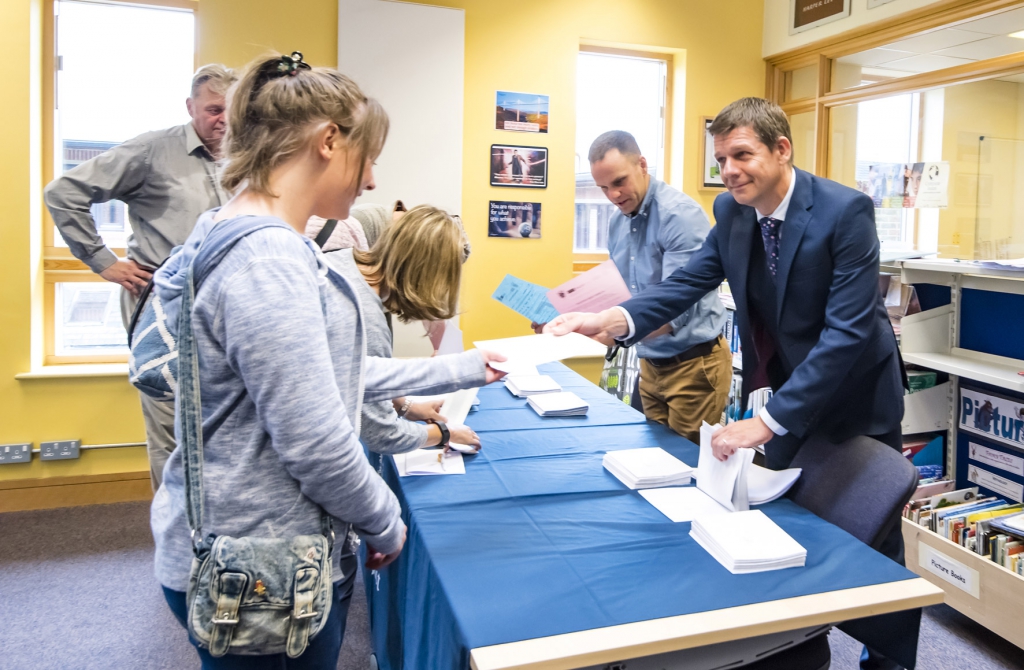Key advice offered to students preparing for exam season
Posted on 16th Apr 2018 in School News, Exams, GCSEs, A levels
Students around the country returned to school this week after the Easter break, with many preparing to undertake a crucial few months of exams that will help to decide their futures. Dr Paul Hodges, Head of Sixth Form at independent all-ability school LVS Ascot in Berkshire, has issued the following useful advice to all students heading into those important GCSE and A level exams:
Give yourself adequate time to prepare
It is so easy to keep putting off starting revision, and that only adds to your stress levels. Use an exam planner to give you a ‘to do’ list for each subject and assign each task with a deadline to make sure you don’t run out of time. Try working through the day in sessions of 45 minutes with a 15-minute rest break every hour. Make sure you stop for lunch and reward a hard day of revision by relaxing before going to bed. Also make sure you have at least half a day off over the weekend so you don’t burn out. An easy way of putting together a weekly study timetable is to mirror the lessons on your school timetable.
Practise exam papers
Go through past papers and identify where you lost marks. You should aim to complete at least five full practice papers for each subject. Start by doing parts of a paper in timed chunks with the textbook to hand. Later, challenge yourself to do past papers, without notes, in silence and within the time limit so that it feels like a proper examination. It is a good idea to get these marked by a teacher who will be able to pinpoint any errors and give you tips to improve.
Turn your phone off and go offline
Avoid the constant distraction of social media during your revision sessions. If you can’t bring yourself to leave your mobile alone then hand it over to a parent, lock it away or leave it in another room. You can always catch up at lunchtime or in the evening when you have finished revising for the day.
Before the examination
Develop a routine to get all your exam equipment ready the night before and double check the date and the time of each exam. This will help to reduce exam day stress by having one less thing to worry about. Make sure you stay calm and avoid people who will stress you out. Find a space where you can mentally prepare for the exam you are about to take. Everyone has a different strategy so work out what is best for you. Try to learn a breathing exercise that you can do in the exam room while you are waiting to start.
In the exam room
When you turn over the question paper take a minute to work out how much time you should spend on each section and jot it down. Rationing your time in this way will make sure you get to the end of the exam with time to check your answers. Use all of the time available in an exam – even if you think you have achieved 100%. Check your answers and check them again. No one has ever found an extra mark that gave them a higher grade by staring at the ceiling!
Dr Hodges concludes: ‘There are a number of ways schools can boost the chances of students preparing for exams. LVS Ascot holds memory workshops led by Head of Psychology and former UK memory champion Mr Paterson to help improve students’ powers of recall, and has a Revision Hub Café where those facing exams can relax and talk through queries with a range of teachers in an informal setting. We also opened our new Sixth Form Centre in September, and more recently invited former pupil Hattie Audaer back to talk to share tips on how to pass exams with our students. But the key to success is often how students themselves approach exams, and following the tips above will help to ensure students around the country can happily say that they did all they could to prepare properly. Good luck to all Year 11 and Year 13 students heading in to a vital few months.’
